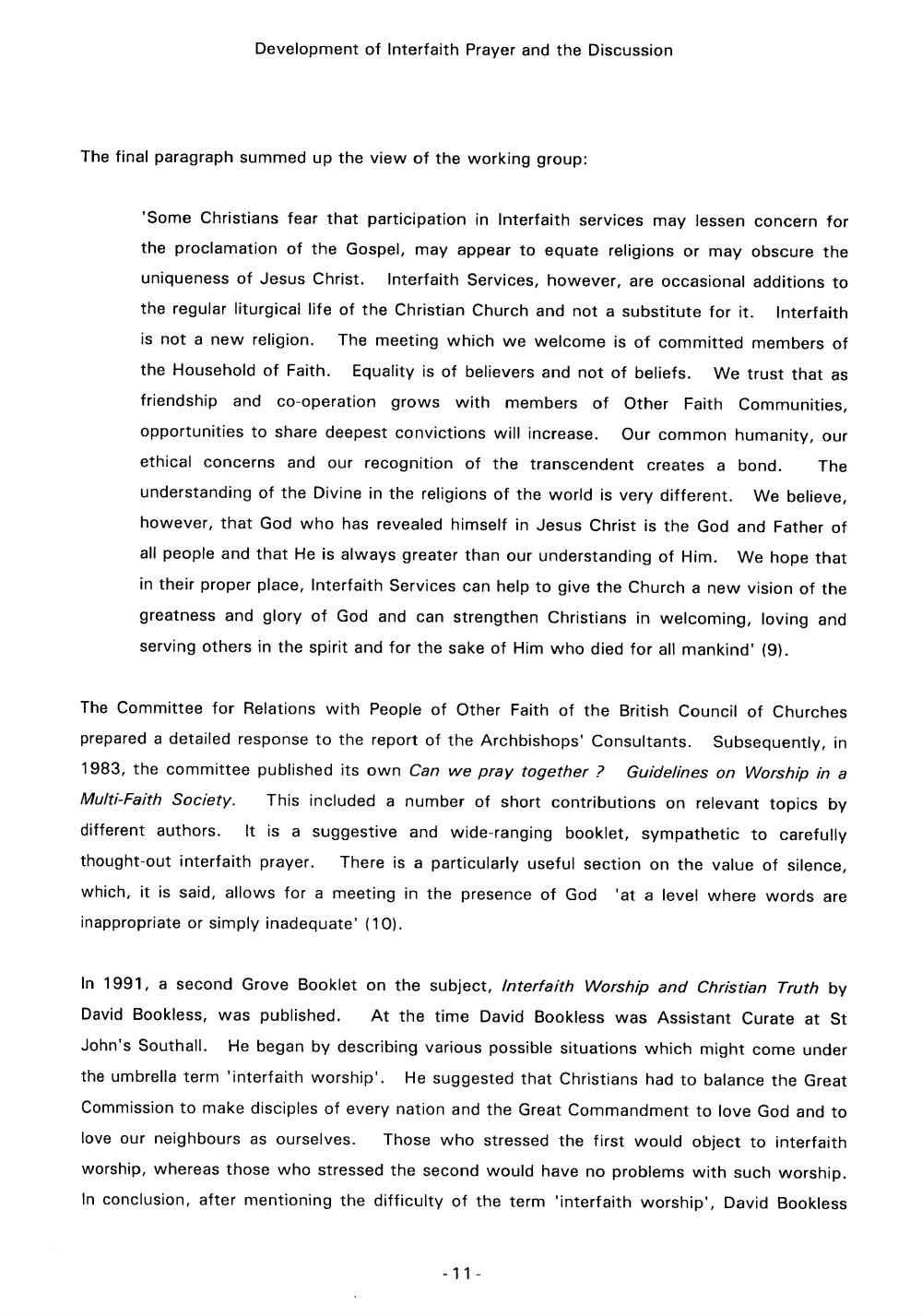________________
Development of Interfaith Prayer and the Discussion
The final paragraph summed up the view of the working group:
Some Christians fear that participation in Interfaith services may lessen concern for the proclamation of the Gospel, may appear to equate religions or may obscure the uniqueness of Jesus Christ. Interfaith Services, however, are occasional additions to the regular liturgical life of the Christian Church and not a substitute for it. Interfaith is not a new religion. The meeting which we welcome is of committed members of the Household of Faith. Equality is of believers and not of beliefs. We trust that as friendship and co-operation grows with members of Other Faith Communities, opportunities to share deepest convictions will increase. Our common humanity, our ethical concerns and our recognition of the transcendent creates a bond. The understanding of the Divine in the religions of the world is very different. We believe, however, that God who has revealed himself in Jesus Christ is the God and Father of all people and that He is always greater than our understanding of Him. We hope that in their proper place, Interfaith Services can help to give the Church a new vision of the greatness and glory of God and can strengthen Christians in welcoming, loving and serving others in the spirit and for the sake of Him who died for all mankind' (9).
The Committee for Relations with People of Other Faith of the British Council of Churches prepared a detailed response to the report of the Archbishops' Consultants. Subsequently, in 1983, the committee published its own Can we pray together? Guidelines on Worship in a Multi-Faith Society. This included a number of short contributions on relevant topics by different authors. It is a suggestive and wide-ranging booklet, sympathetic to carefully thought-out interfaith prayer. There is a particularly useful section on the value of silence, which, it is said, allows for a meeting in the presence of God 'at a level where words are inappropriate or simply inadequate' (10).
In 1991, a second Grove Booklet on the subject, Interfaith Worship and Christian Truth by David Bookless, was published. At the time David Bookless was Assistant Curate at St John's Southall. He began by describing various possible situations which might come under the umbrella term 'interfaith worship'. He suggested that Christians had to balance the Great Commission to make disciples of every nation and the Great Commandment to love God and to love our neighbours as ourselves. Those who stressed the first would object to interfaith worship, whereas those who stressed the second would have no problems with such worship. In conclusion, after mentioning the difficulty of the term 'interfaith worship', David Bookless
-11




